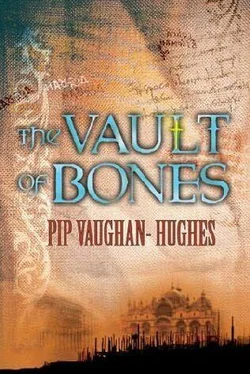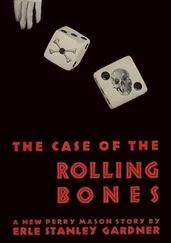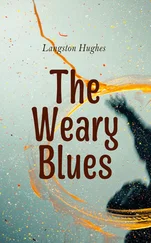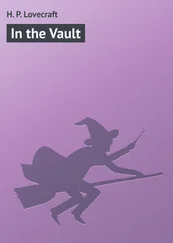Pip Vaughan-Hughes - The Vault of bones
Здесь есть возможность читать онлайн «Pip Vaughan-Hughes - The Vault of bones» весь текст электронной книги совершенно бесплатно (целиком полную версию без сокращений). В некоторых случаях можно слушать аудио, скачать через торрент в формате fb2 и присутствует краткое содержание. Жанр: Исторический детектив, на английском языке. Описание произведения, (предисловие) а так же отзывы посетителей доступны на портале библиотеки ЛибКат.
- Название:The Vault of bones
- Автор:
- Жанр:
- Год:неизвестен
- ISBN:нет данных
- Рейтинг книги:4 / 5. Голосов: 1
-
Избранное:Добавить в избранное
- Отзывы:
-
Ваша оценка:
- 80
- 1
- 2
- 3
- 4
- 5
The Vault of bones: краткое содержание, описание и аннотация
Предлагаем к чтению аннотацию, описание, краткое содержание или предисловие (зависит от того, что написал сам автор книги «The Vault of bones»). Если вы не нашли необходимую информацию о книге — напишите в комментариях, мы постараемся отыскать её.
The Vault of bones — читать онлайн бесплатно полную книгу (весь текст) целиком
Ниже представлен текст книги, разбитый по страницам. Система сохранения места последней прочитанной страницы, позволяет с удобством читать онлайн бесплатно книгу «The Vault of bones», без необходимости каждый раз заново искать на чём Вы остановились. Поставьте закладку, и сможете в любой момент перейти на страницу, на которой закончили чтение.
Интервал:
Закладка:
'And Anna, too,' I interrupted. 'To her it was a city of gold, a miracle.'
'And now it is a skeleton.' The Captain kicked a lump of charred brick, which clattered hollowly into an empty doorway.
'That is what I saw from the ship, as we came in last night,' I told him. 'A jawbone, all rotten. And the merchant churches like fat worms feasting on the decay.'
At last we found ourselves in another open space, a public space, surely, but one that now held no one who might be described as public. It did, however, contain a large number of armed men, who loafed about, polished weapons or fed horses. On the far side rose a vast wall of stone and brick. It rose in a series of arches, one row atop the other, to a tumult of domes, battlements and spires topped with Greek crosses, two-headed birds and other arcane devices. Many flags and pennants fluttered: the gold and red of the empire, of course, and others I did not recognise. As we walked closer I saw that we were approaching a gate in an outer wall, that was in itself as complex as the palace – for so it was – that it shielded. It extended out of sight on both sides, swallowed up in other buildings or in heaps of rubble, to which, in many places, it had itself been reduced. Now at last we were among crowds, and it became apparent that these men did not follow the practices of the effete Greeks they despised. For they stank. The square gave off a rancid stench of unwashed flesh, manure and horse-piss. It was almost as foul as the air on the rowing deck of the Stella Maris.
Around us, uncouth voices croaked and snarled in French, Flemish, Catalan, Piedmontese. I guessed it was some regular gathering – pay day, perhaps – for the soldiers were bored but restless. The bulk of them I took to be mercenaries – for what else would Catalans be doing in Greece? – but here and there I saw white surcoats stitched with the rough cross of the crusader. Old Pope Gregory had said a crusade had been preached, and evidently a few, at least, had heeded the call, but their fresh, younger faces were at odds with the scarred, scowling countenances of their fellows. Those men lolled about, many of them perched on plinths of stone that were dotted about regularly, and which I guessed had held statues or monuments that had been looted or destroyed. And indeed I glimpsed a headless marble figure that had evidently been part of a fountain or some such. Now it lacked, not only a head, but one arm and much of its upper torso. By way of compensation, though, it had been endowed with a gigantic, virile cock sketched crudely in charcoal. Horses were tethered to one of its legs. The streets we had walked to get here had been more or less clean, save for the detritus of ruin, for there was no one to foul them. Here, though, the ordure lay in heaps all around, and the stone pavement of the square was all but hidden by a thick layer of dung and other filth. It was a barnyard, a midden. The Franks had been here thirty-three years, and they had yet to find a broom.
The gate, in keeping with the gargantuan scale of the palace, was towering, and wide enough for a company of horsemen to ride through six abreast. It had been much hacked about lower down, and was charred and streaked with the memory of fire. Many of its iron fittings were bent and buckled. And yet it was still formidable, and at this hour it was shut fast.
A pair of smart-looking guards in leather hauberks, with gold crosses upon their red surcoats, came noisily to attention as we stepped out of the reeking throng and approached them. For the second time that morning I remembered that we were dressed like Frankish lords, and felt somewhat smug when the guards wiped the surliness from their faces. I allowed the Captain to take the lead, and-when one of the guards stepped forward to ask our business, he flourished the letter with the gigantic papal bull under the man's nose. In the wink of an eye the gate was hauled open a crack by unseen hands, and we had been ushered through into an immense courtyard. The guard indicated a second gateway, and we set out across the yard. In a way this place was the exact opposite to the square outside. Here the marble flagstones were swept clean, and the statues still upon their plinths, although here again only a couple still retained their heads. It was clean and orderly, but I had the sense that, when once such a majestic yard would have had dozens of servants devoted to its upkeep, now it was maintained by one tired man. The trees – for oranges, olives, bay laurels and even palms grew here and there – were dead or dying, although their fallen leaves had been removed. Swarms of brown sparrows and pigeons crowded the dry branches and filled the air with their shrill riot. It was as bright and cheerful a scene as I had yet found in Constantinople, and yet it was a ruin nonetheless, and here, as outside, there were phantoms. Well, gentlemen, greetings indeed!' said Narjot de Toucy, looking up in surprise from the pope's letter. He beckoned over a tall, thickset man who was standing against a nearby column. This is my lord Anseau de Cayeux, Regent of the Empire of Constantinople. Anseau, these chaps have a letter from the pope.'
It was our turn to be surprised, and we both backed away and made the lowest, courtliest bows in our repertoire.
‘Jean de Sol, at your service, Excellency,' intoned my companion.
‘Petrus Zennorius,' I echoed. The man laughed good-naturedly.
'Nay, nay, good people. You are most welcome here. We do not stand on a great deal of ceremony, as you have no doubt observed.' He laid a friendly arm across the shoulders of Narjot de Toucy, and the two barons regarded us amiably. They were quite unlike, these two: de Toucy was hollow-cheeked and crow-like, with coarse black hair and a short-cropped soldier's beard; de Cayeux was somewhat florid, with a lion's mane of golden curls. He appeared to be running to fat, but I saw that this was not the case. His jolly appearance was deceptive: what seemed to be fat was muscle, and his happy blue eyes were piercing.
We had arrived at this temporary throne room after much peregrination through the labyrinthine and decaying corridors of the Bucoleon Palace. Beyond the great doors we had entered another courtyard, this one shaded and smelling of cat-piss and wet moss, and through another gateway into a high hall that receded into shadow in a series of pillared archways. Here again the cats had been diligent, and although large Flemish tapestries were hung here and there on the walls they were dwarfed by the great height of the ceiling, and, when I cast my now expert eye over one as I passed by, I saw that it was old and not of any great quality: no more than would have graced the dining-chamber of an Antwerp burgomeister of the middle rank. The tapestries tried to mask the faded murals and damaged mosaics that covered the walls, but seemed crude and ugly in contrast. For though the plaster was crumbling, and the mosaics had been stripped, I guessed, of their gold, where they still existed they yet possessed a hint of dignity, like the shred of life that lingers on the faces of the dead until the flesh has grown cold. As we made our way down this hall we came upon small groups of men who turned their heads and regarded us suspiciously as we passed by. They were French nobles and priests, mainly, to judge from their dress. We came to the end of the corridor to find ourselves at a locked door and a crossways: seeing people to our left we chose that road, but only by asking a legion of slack-faced serving lads had we found ourselves in this far-flung corner of the palace. I had long since lost track of how we had come here, although, thinking back, we might have passed the ancient throne room, a lofty cavern whose walls were faced with purple stone but whose ceiling had indeed caved in. Nothing but spiderwebs here now: spiders and dust.
Читать дальшеИнтервал:
Закладка:
Похожие книги на «The Vault of bones»
Представляем Вашему вниманию похожие книги на «The Vault of bones» списком для выбора. Мы отобрали схожую по названию и смыслу литературу в надежде предоставить читателям больше вариантов отыскать новые, интересные, ещё непрочитанные произведения.
Обсуждение, отзывы о книге «The Vault of bones» и просто собственные мнения читателей. Оставьте ваши комментарии, напишите, что Вы думаете о произведении, его смысле или главных героях. Укажите что конкретно понравилось, а что нет, и почему Вы так считаете.









